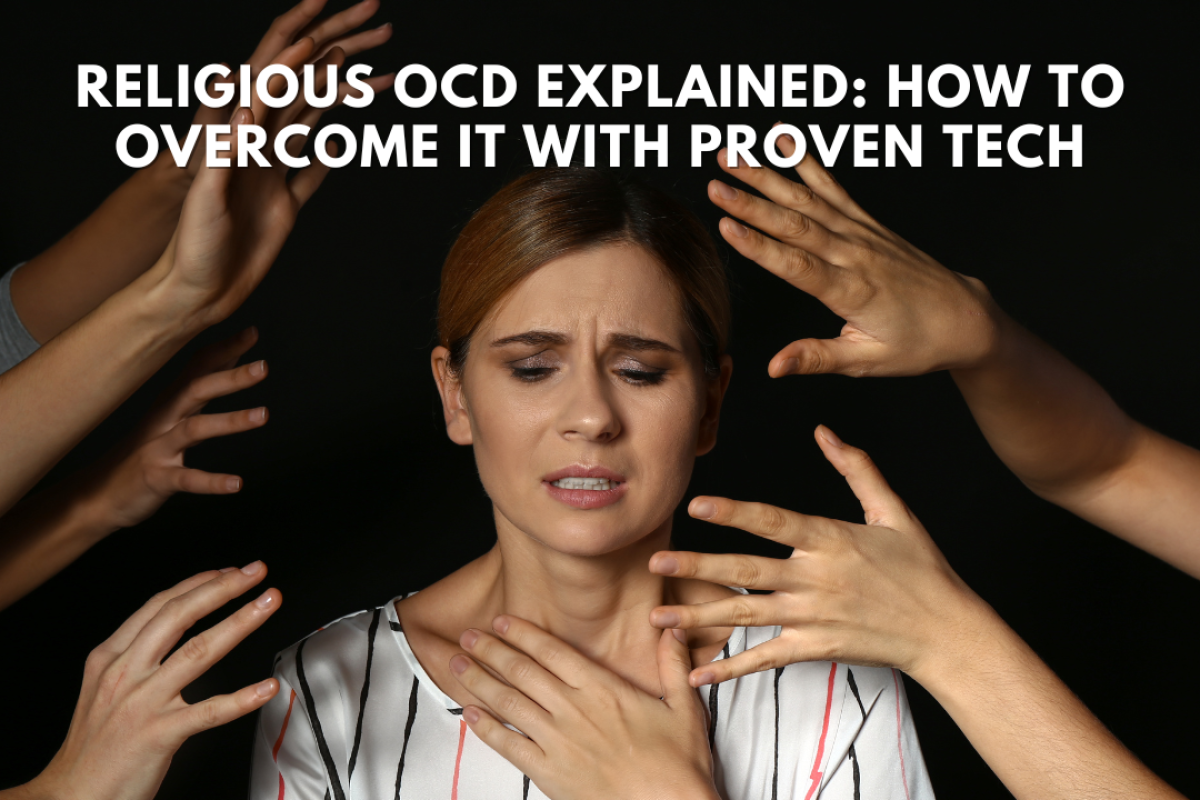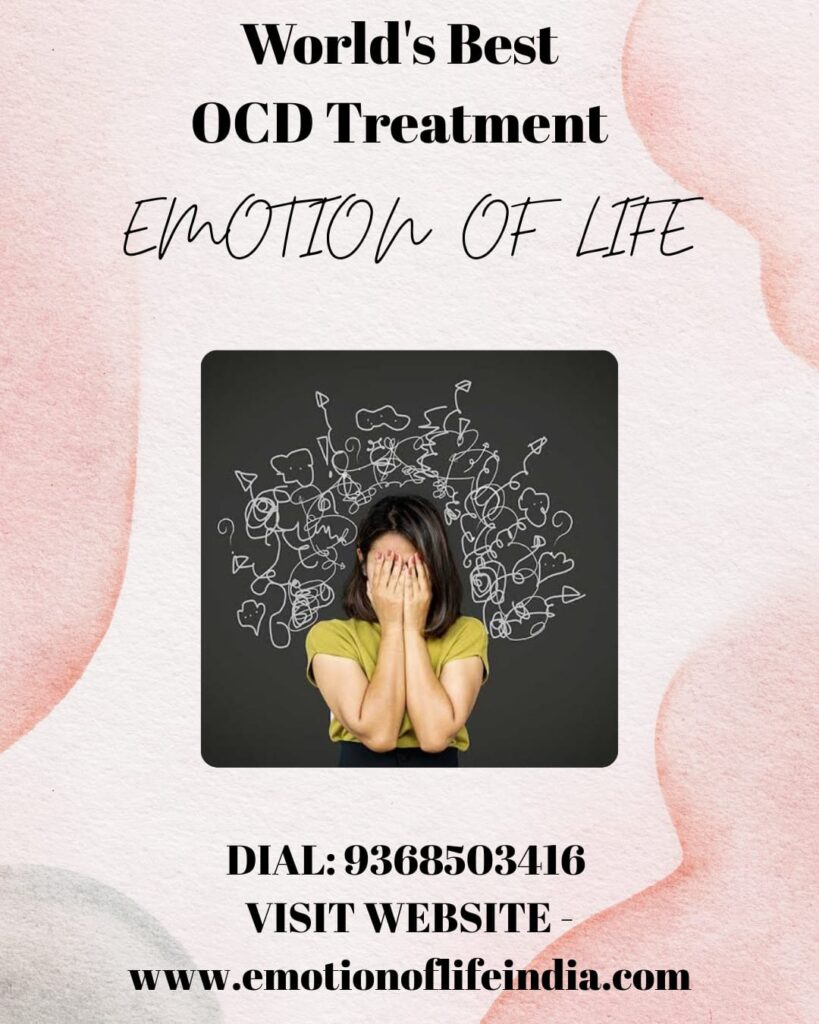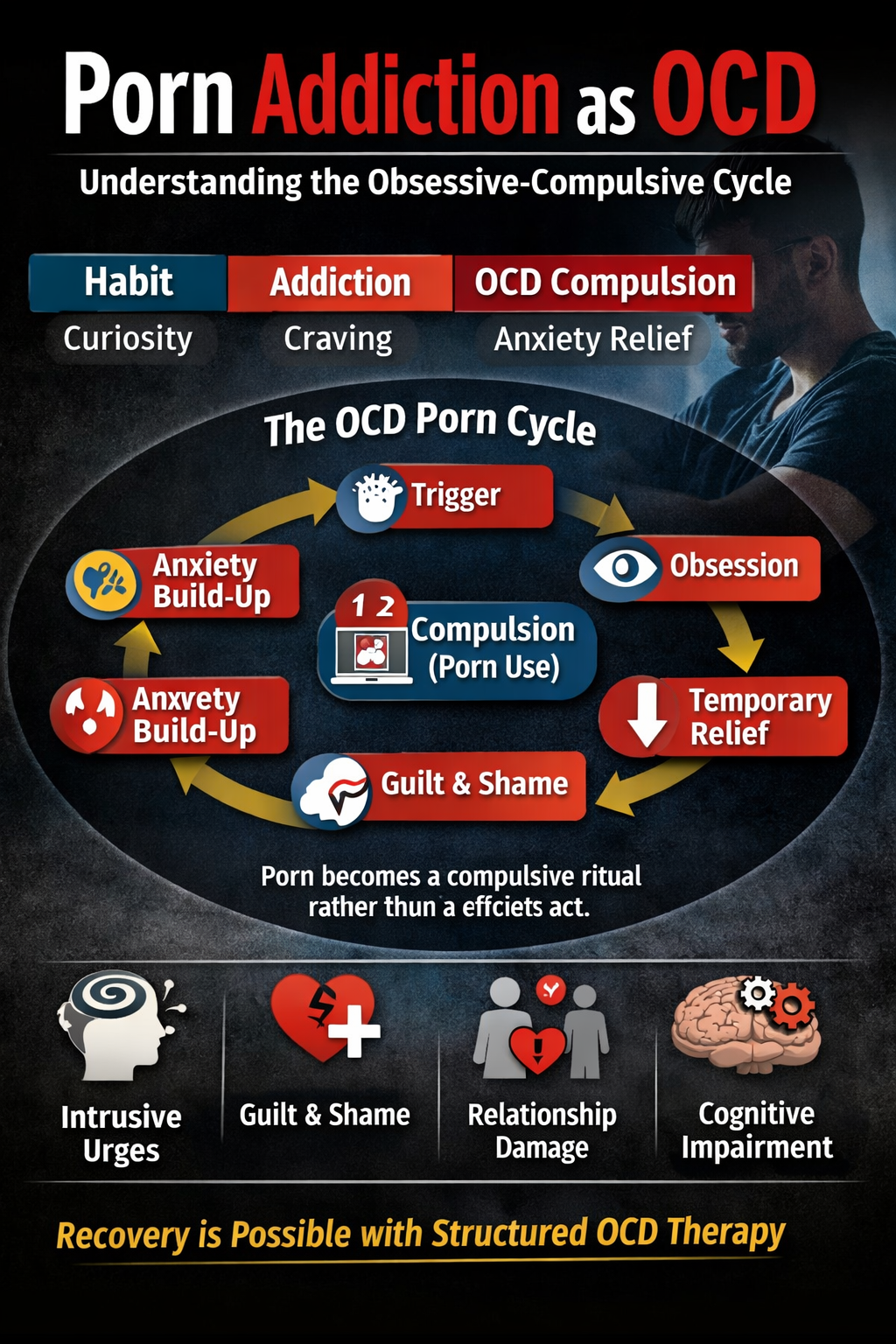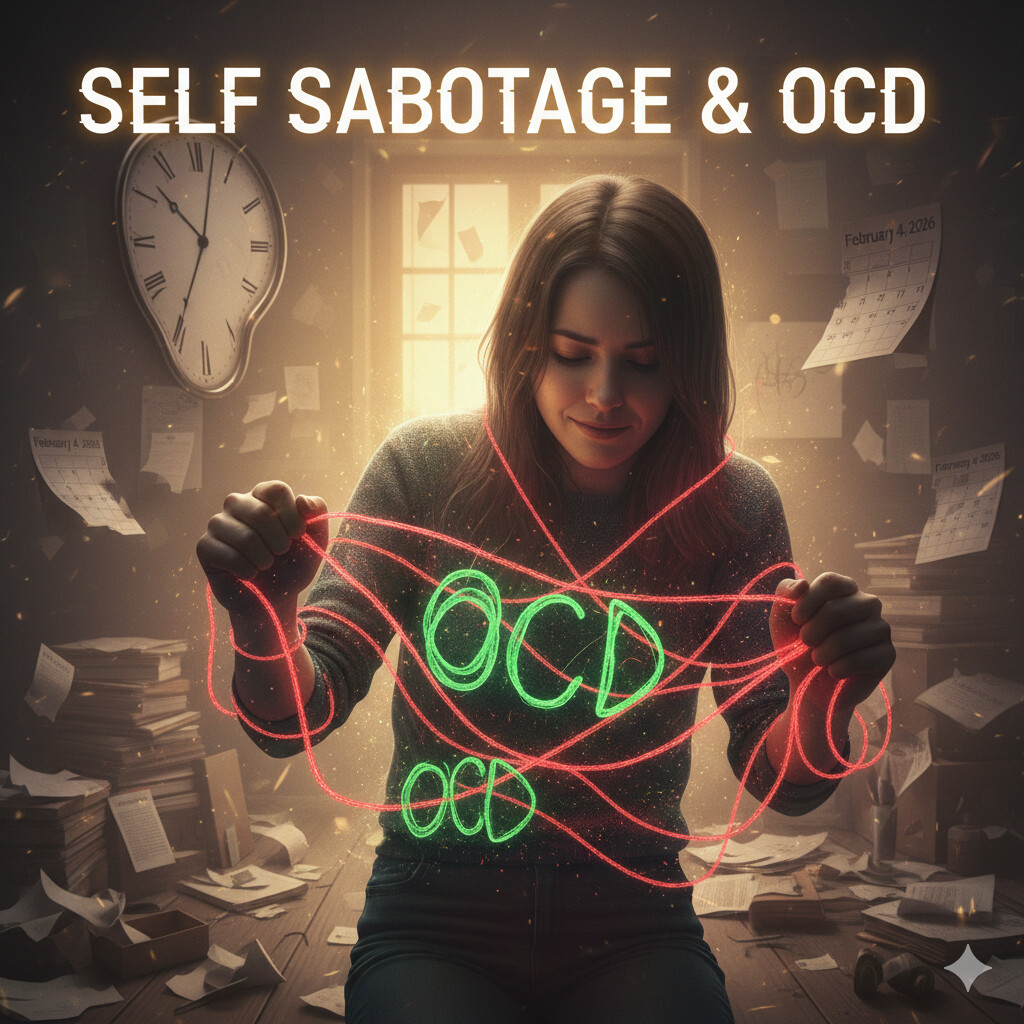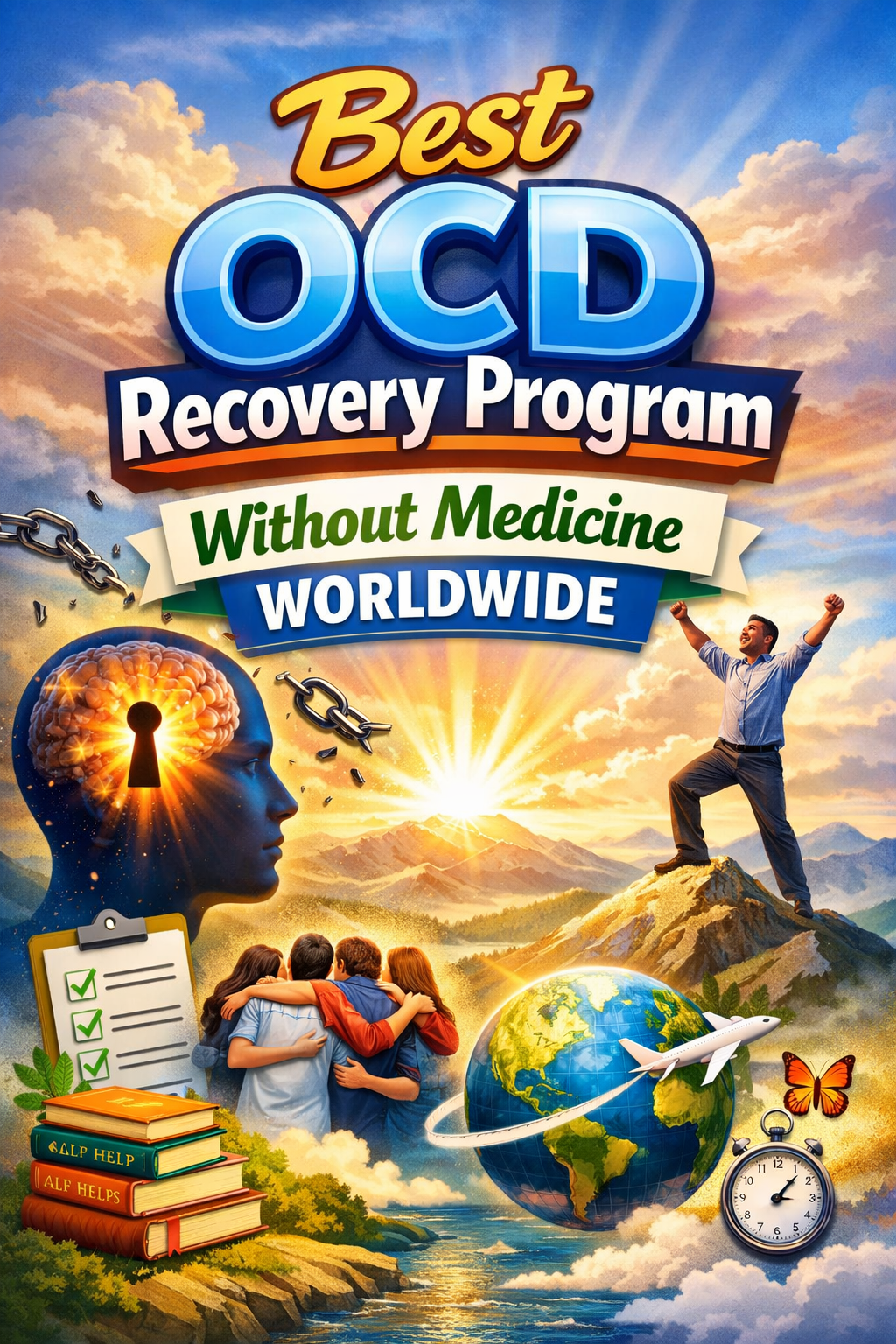Overcoming Religious OCD
Overcoming Religious OCD, or scrupulosity, is a form of obsessive-compulsive disorder (OCD) that revolves around religious and moral concerns. It’s not just about having a strong faith or devotion. Symptoms of Overcoming Religious OCD involve intrusive, distressing thoughts about religion or morals that lead to compulsive behaviours aimed at reducing anxiety. Compulsive rituals can merge with what true religious practice means within such a context, blurring the line between them and making things practically unbearable for those it impacts.
What is Religious OCD?
To explain what is Religious OCD, it’s essential to understand that this disorder goes beyond ordinary devotion. Overcoming Religious OCD is based on the obsessive idea of acting against the religious or moral framework. The thoughts can be cyclical, unusual, or contrary to personal beliefs and attitudes. Someone may constantly feel guilty or as if they have done something wrong, mistakenly acting against God’s orders. Sometimes, people with Overcoming Religious OCD can spend hours in prayer or go to great lengths to ask for assurance from their local priest or clergy. The above actions stem from fear rather than faith. Symptoms are the means of dealing with this fear. They act as signs warning the individual of something while making it difficult for sufferers to live their daily lives.
Symptoms of Religious OCD
The symptoms of Religious OCD may be subdivided into two groups – obsessions and compulsions. While the former implies cyclic, intrusive fears that something is not achieved, the latter consists of actions the individual feels compelled to perform each time they face anxiety.
Here are some common symptoms of Religious OCD:
Obsessions:
- Feeling like saying or acting against religious beliefs
- Obsession over the punishment associated with a supposed sin
- Excessive concern over being morally impure
- Questioning whether their prayers or other religious acts are “good enough.”
Compulsions:
- Prayer that gets longer and longer or leads to repetitions to “achieve perfection.”
- Checking and asking local priesthood, family, or friends for reassurance
- Confession for true sins, hazy memories, or things that have not happened
- Avoiding sin. Engaging in rituals such as excessive cleansing or avoiding certain objects or situations to avoid sin.
These behaviours can consume hours each day and interfere with your daily activities, causing you significant distress.
Religious OCD Examples
Let’s look at a few Religious OCD examples to understand better how this condition manifests:
- A person might feel compelled to say a prayer perfectly. If they make a small mistake or feel they weren’t focused enough, they’ll repeat it multiple times, sometimes for hours.
- One might fear they had an inappropriate or blasphemous thought about a religious figure and will repeat prayers or ask for forgiveness repeatedly to neutralize their anxiety.
- A person may avoid attending religious services altogether because they fear committing a sin during the ritual or that their thoughts will be impure while there.
These examples highlight how Religious OCD can lead to repetitive, distressing behaviours that don’t offer long-term relief. Instead, the compulsions only provide temporary relief, perpetuating the cycle of OCD.
Overcoming Religious OCD involves seeking help from a mental health expert, who will evaluate your symptoms based on the nature and frequency of your obsessive thoughts and compulsive behaviours. If you have OCD, psychologists or psychiatrists can differentiate between healthy religious devotion and compulsive behaviours.
If you’re concerned that you may be suffering from Overcoming Religious OCD, think about how your thoughts and actions are impacting your life. Are you spending inordinate amounts of time on prayers, rituals, or confessions? Do you feel as though you can never do enough to satisfy your religious duties? If you answered these questions in the affirmative, you may want to speak with a professional to determine if you’re dealing with Overcoming Religious OCD. Since Overcoming Religious OCD is very treatable, seeking an evaluation will most likely be a good choice.
Treatment for Overcoming Religious OCD
Overcoming Religious OCD treatment is effective and can help people to regain control over their thoughts and actions. The two most common treatments for Overcoming Religious OCD are CBT and ERP.
Cognitive Behavioural Therapy (CBT)
CBT can help individuals to identify their obsessions and confront them in therapy. It would be possible for them to understand what causes their irrational thoughts and how to avoid invoking them as they pertain to Overcoming Religious OCD. As a result, Overcoming Religious OCD sufferers may be able to lessen the power of their intrusive thoughts of sin and morality.
Exposure and Response Prevention (ERP)
As far as ERP goes, while it is also a type of CBT, it requires the client to encounter his or her fears and obsessions without those compulsions that are typically employed in such cases.
How to Overcome Religious OCD
The best way to resolve the question of ‘how to get rid of Overcoming Religious OCD?’ is to locate a therapist with whom the person struggling with the disorder feels comfortable and who has successfully treated clients with the disorder. Additionally, recovery would depend on these vital steps:
- Stay committed to therapy: Regular therapy is essential for making any progress. You should make an effort to be consistent no matter how tired it feels.
- Follow your medication plan: If you have taken any drugs, you must adhere to the prescription. Sometimes, drugs may be needed to control some of the symptoms of OCD.
- Reduce reassurance-seeking: You must practice the habit of reducing requests for general people or your religious leader. This is an indication that you are helping to feed the OCD cycle.
- Practice mindfulness: Mindfulness tips can teach you about thought observation without reacting to our thoughts. This will help you reduce the urge for compulsive behaviours.
- Build a support system: You should adopt people who motivate you and keep you on track throughout your treatment.
The appropriate level of help reduces the symptoms and ensures that they do not have a reasonable impact on the individual’s daily life. One of the most popular OCD treatments is CBT and ERP, as it helps individuals minimize the symptoms and feel normal.
Success Stories
Success Story 1 – Meera’s Freedom from Intrusive Religious Doubts
Meera, a 24-year-old student, struggled with constant guilt and repetitive confessions, fearing she was sinning. She joined Emotion of Life in 2020, where our therapists guided her through ERP and mindfulness techniques. Within 4 months, Meera broke free from reassurance-seeking and today practices her faith with peace of mind.
Success Story 2 – Daniel’s Recovery from Excessive Prayer Rituals
Daniel, 32, felt compelled to pray dozens of times a day to “make things right” with God. This impacted his work and family life. Under Shyam Gupta and Pratibha Gupta’s guidance, he learned structured ERP at Emotion of Life. After 4 months, Daniel regained balance, prays normally, and is free from OCD-driven rituals.
Client Reviews
Review 1 – Priya, India
“I had Religious OCD for years, constantly doubting my prayers and morality. The therapy at Emotion of Life helped me face my fears. With ERP, I finally stopped repeating prayers and confessions. Shyam Gupta and Pratibha Gupta changed my life.”
Review 2 – Rahul, USA
“Scrupulosity made me feel trapped in guilt. At Emotion of Life, the daily monitoring and personalized ERP program gave me strength. Today, I feel free and spiritually connected without compulsions controlling me.”
Conclusion on Overcoming Religious OCD
Religious OCD can be an incredibly distressing condition, but it is treatable. If you have Religious OCD or know someone who does, make sure to consult a mental health expert.
At Emotion of Life, we focus on holistic care, addressing not only clients’ mental health issues but also their families’ needs. We get to the root causes of issues, offering personalized therapy and support. Our team of experts is available from 7 AM to 10 PM, both online and in-person, in Agra.


